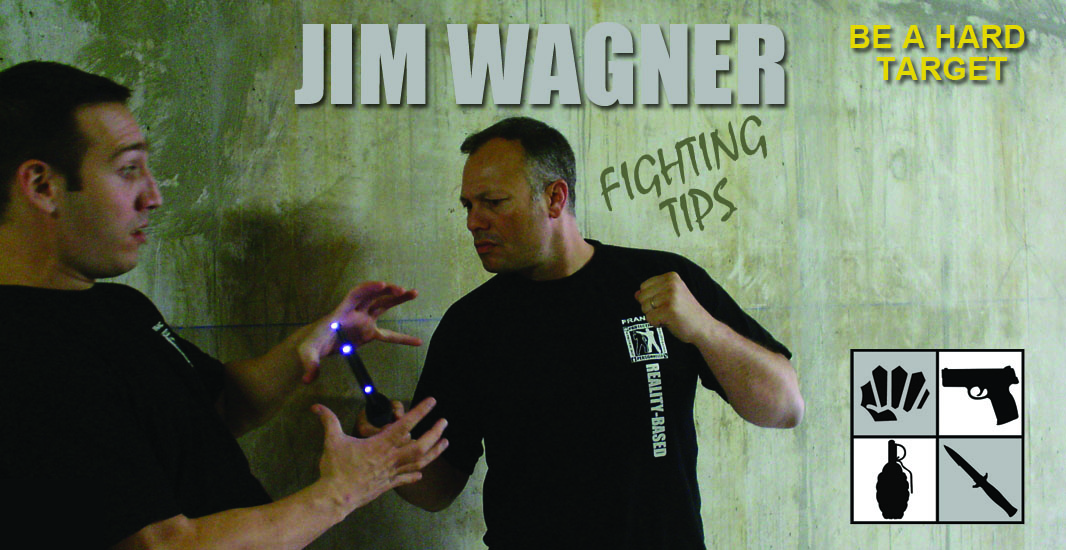There is legal risks in self defense. Anytime you use your martial arts skills (use-of-force) against another person, even if you are justified in doing so, you will be held legally responsible for your actions. In short, it means going before a court of law within our justice system. Even if the litigation is not against you personally, but charges have been filed against the person who attacked you, you may still have to “take the stand” and testify before a grand jury, judge or jury of your peers. If you have not prepared for this type of “fight,” you may find yourself in a losing a battle. Losing can mean anything from you being sentenced for a crime(if you used excessive force for example) to watching a criminal go free because you didn’t know how to adequately articulate (starting with the police and ending with the jury) your case before the court or how to “behave” on the stand.
Based upon my experience and training, I’m going to give you some court survival tactics that will help you maintain your testimonial credibility, and to prepare you for the place in which your martial arts skills will inevitably take you – the court room.
After the fight
If you become the victim of a crime, or use your martial arts skills (the use of physical force) to protect a victim, the police are inevitably going to question you and take a report. In past issues we have covered the topic of police reports, but we will touch upon a few good pointers for those of you just joining HIGH RISK for the first time. First of all, whenever you are questioned by the police you must be truthful, clear, concise, and as detailed as possible concerning the facts surrounding the incident. State exactly what happened before, during, and after the conflict. Also, include how you felt. This may sound “touchy-feely,” but your mental state is very important in a use-of-force case. If you were afraid for you life, then say so. If you thought someone was going to get hurt, and you had no choice but to intervene, make this part of your oral or written statement. On the other hand, if at any time you think the police may perceive you as the suspect, which can happen, then stop talking. You have the constitutional right to remain silent and seek counsel (talk to an attorney). Remember, “Anything you say can be used against you in court.” These words are part of what’s known as the Miranda Rights advisement, and the police do not have to say them law to answer all booking questions: name, date of birth, address, etc. For the rest of this article we will assume that you are not considered the guilty party, and that our hypothetical situation is a clear cut case of self-defense on your behalf.
Going to court
If you have never had the opportunity to testify in a criminal case before a court, then you’re in for quite an experience – usually a frustrating one.
One would have thought that my 13 years in law enforcement would have instilled in me a degree of confidence in our judicial system. After all, I have sent many individuals through it. Well, it hasn’t, quite the opposite. If anything, the years have actually made me distrust it the system. It’s a sentiment echoed by law enforcement officers across the land. Remember, I have personally trained with over 500 agencies as a defensive tactics and special operations instructor, so I have heard the complaints of many officers on this matter. With that said, I have learned to navigate through the court system’s quirks, and it’s my goal here to help prepare you for this type of battle that you may have never had thought your martial arts skills would have gotten you into.
If you have not actually experienced the court system first hand, you may be under the assumption that you will have the opportunity to tell your side of the story when called up to the stand. After all, all you have to do is just tell everyone in the courtroom what happened from A to Z – just like you had done for the cops – right? Wrong. Nothing could be farther from the truth. You will be manipulated to tell your side of the story in piecemeal. There is no such thing as “telling the whole story.” The old, “Do you swear to tell the truth, the WHOLE truth…” just doesn’t apply in today’s American courts. Sure, you’ll get your chance to speak if you if you choose to, but it won’t be from start to finish like you would expect it to be. Nobody has that luxury. I have been to court many times for various criminal cases, and I have yet had the opportunity to tell my side of a story from start to finish without being interrupted, cut off, or not allowed to give it at all; except maybe in traffic court.
Obviously, anyone who gives a testimony is going to slant it in their favor, which is why there is cross-examination. This is the phase of the trial where the attorneys have the opportunity to question the opponent’s witness. Story telling is as old as mankind itself, and everyone, even kids, know how to tell a story from start to finish. Not so in court. In fact, today’s system reminds me of the refrigerator magnet game where you have a couple dozen words printed on the face of the rectangular magnets and you have to form a sentence with a limited amount of words given. Stray too far from what the attorney questioning you wants to hear come out of your mouth, and you will have to rearrange the order of the magnets on the door, so to speak.
It sounds absurd, but you do not get to tell your whole story in court. You’ll be lucky if you are allowed to tell a fraction of it in most cases. It’s not like the movies or the court T.V. shows that feature civil disputes (torts). If your testimony strays too far into those facts that the attorney does not want revealed, even though they may be the “whole truth,” you’ll be cut off. In fact, you will be interrupted many times – regardless of the truth or lack thereof.
Truth is not always goal of the judicial system anymore.
A little history lesson
Why isn’t today’s justice system like is was in the “cowboy days,” where if a person took the stand they had the opportunity to give their side of the story in its entirety? Then, after they were finished the attorneys would cross examine them to determine the truth.
As any law student will tell you, the system became jaded in the 1920s. This was the time period of the Mafia (Chicago mobsters, Al Capone, drive-by shootings with the Thompson machine gun, prohibition, etc.) When many of these gangsters were arrested and brought before the courts, they gave convincing stories of their innocence, or they flat out intimidated the jurors and witnesses who helped set them free. That’s where we get the expression “they had their day in court.” To counter the trend, the government came up with restrictive rules, most of which remain with us to this day, in order to “protect” the public and to get the convictions they sought.
Today money and politics play and important roll in what defines “justice.” Defense attorneys do not want the “whole story” reveled, but only those bits and pieces that will get the case dropped or dismissed. The District Attorney’s Office is also not interested in the whole story, but only enough to get a conviction. Many times legitimate criminal charges are never filed against law breakers if a prosecutor believes that the case is not winnable. After all, their position leads to bigger and better political positions in the future, and losses don’t look good on record. That’s not to say that there are not good attorneys on both sides of the fence who truly seek justice, because there are. It’s just that the system is getting as complex as the tax code, and everyone works it to their advantage.
Court terminology
The person who attacked you is called the defendant. Since it is a criminal case (possibly followed by a civil suit at a future date) it is the State, through the District Attorney’s Office, that files the charges against the defendant (assuming that there was a violation of the State’s Penal Code – such as assault and battery, rape, assault with a deadly weapon, etc.). If federal laws were violated, the process is the same, only it is tried in a federal court.
You will be the witness, and will testify (give statements under oath) against the defendant. In order to have a fair trial, the defendant will have a defense attorney, either hired by the defendant himself or appointed to him if the defendant cannot afford one. When you are called up to the stand to testify the defense attorney will do everything he can to discredit you. He will try to make it look like you are exaggerating, twisting the truth, or all together confused about the events that took place. The defense attorney may even go out of his way to try to get you angry or upset. Unfortunately, it doesn’t end there. Sometimes the very person you think is “on your side,” the prosecutor, may be just as brutal with you, if not worse, as the defense attorney. You just have to remember one rule – YOU HAVE NO FRIENDS IN THE COURTROOM. Everyone has their own agenda. Therefore, your main objective is to survive as a witness.
Courtroom survival tactics
Here are a few helpful hints that will work in your favor if you are ever called to the stand to testify:
Dress conservatively. Even the worst criminal will wear a suit and groom themselves for court appearances. Don’t be fooled, people do judge you by the way you dress. You are more credible to the jury if you dress conservatively. This means a business suit.
Get a copy of the police report (if available). In most cases you can purchase a copy of the police report. The report will refresh your memory, and it will also give you insight as to what angle the police took. You can see what facts were put in the report, and what ones were left out. A report is nothing more than a synopsis, and need not contain every fact. In court the report is often referred to.
Think before answering. Whenever you are asked a question on the stand, think about it first. If you don’t understand a question, ask for clarification.
Speak properly. Do not use slang or profanity, unless you are quoting someone (such as the words that the suspect spoke).
Be professional. Stay calm and in control, even if you are verbally attacked. Just as you learned how to how to control your mind and body through breathing exercises in your self-defense training, so to must you do the same in this new environment where your “opponent” is trying to corner you.
Make eye contact. When you are asked a question, look that person in the eyes as you listen. When you answer the question you need to also look the jurors in the eyes. This body language will reinforce the fact that you are telling the truth, and have nothing to hide. Looking around at the ceiling or at the floor will make you appear like you are fabricating an answer.
Beware of attorney traps
When you face cross examination (questioning) by the attorney there are two strategies often taken: tactics and tricks. A tactic will be used when the attorney thinks that you are lying and will seek to draw out the truth. A tactic could be asking the same question in different ways. A trick is used when the attorney knows that you are telling the truth, but tries to make it appear that you are lying, or at best, that you are confused. Here are a few tricks that you should be aware of:
Yes and No answers. You may be directed by the attorney to simply answer with a “yes” or a “no.” Yet, in so doing, your answer may mislead the jury. For example, you may be asked, “Were you drunk at the time of the fight, yes or no?” For argument sake, let’s say that you had not been drinking at all. If you answer the question, “No” it makes it appear as if you had been drinking that night, but were stating that you were not “drunk.” Based on just a “no” answer the jury may think that you had indeed been drinking, which makes a juror wonder how close to being drunk, or out of control you were. It’s all ludicrous, because you had not been drinking at all. Thus, if you feel that you cannot answer a question with just a “yes” or a “no” answer, then answer it as quickly and as appropriately as you can before being cut off, “I wasn’t drinking at all that night.” The defense attorney may object and have the judge order you to make a yes or no statement, in which case you have to answer it as directed or you will be found in “contempt of court” (breaking the rules).
Diversion. Another nasty attorney trick is to ask you irrelevant questions that will divert the jury’s attention away from pertinent information that will hurt the defendant’s case. For example: you might be asked what color the attacker’s shoes were. Unless the shoes really stood out in your mind, most people wouldn’t know. The point is that it doesn’t really matter in most cases, but the attorney will grill you on this point, knowing you probably won’t remember, in order to get you frustrated. The attorney might ask you something like, “You can’t remember what color his shoes were? That’s part of a physical description isn’t it? Are you sure that you even saw the attacker at all? What else can’t you remember?” If you can’t remember something, then don’t worry about it, and certainly don’t get frustrated over the question. If you don’t know, just say, “I don’t remember” or “I can’t recall.” The human eye is capable of taking in millions of bits of information every second. In a crisis situation, the mind focuses on key elements (this is known as “tunnel vision”). Nobody can recall every single detail in a crime, so don’t pretend to.
Character assassination. You see it all of the time with alleged police brutality cases. The first thing a defense attorney does when a law enforcement officer is accused of improper use-of-force is to dig into the officer’s background to see if past complaints against the officer had been filed. Even if the officer was justified in using force against his client, the goal of the defense attorney is to make the officer look like a “bad apple.” The same thing often holds true for female victims who have been sexually assaulted. The defense attorney will try to paint a picture of a woman who was actually “inviting” it if in their research they discovered that the victim is sexually active or was wearing sexy clothes. Likewise, if you’re a martial artist the attorney is going to make it look like you are a “lethal weapon” or a “big bully.” Because of your “high level of martial arts training” they will make it appear that you could have controlled the situation, but you didn’t. You were just itching to “test out” your fighting skills. To prevent character assassination, you have to start now. Yes, now. Be careful of what you say while training. Statements made in front of students or instructors, such as, “Whoever attacks me will be sorry” or “Anyone who rushes the cockpit I’m taking out” can one day be used against you in a court of law. The last thing you want to happen is to see one of your fellow martial artists on the stand testifying against you, saying something like, “He (or she) is always talking about ‘no mercy’ during training.” Just remember, anything negative you say in the dojo can turn around and bite you one day. On the other hand, if you say things like, “I hate violence, I hope I never have to use this” people will remember that as well. I’d rather have a jury hear that I had a reputation of being against violence, than testimony after testimony saying I was “gung ho.” Again, these are just small things that should be part of your current training.
Rapid Fire Questions. To get you frustrated the attorney may ask you a series of rapid fire questions. If this happens to you, slow down and take one question at a time. There’s nothing wrong with saying, “I’m sorry, can you repeat the first question again? I will answer that one first.”
Don’t dig your own grave
Don’t be your own worse enemy while on the stand. Words are important, and every word out of your mouth will be carefully evaluated. Again, you need to think about each question, and carefully give your answer. If asked why you used certain techniques against the attacker, don’t say something like, “Because I was trained that way.” This statement will never be your justification for the use of force. You must be able to explain why you chose certain techniques and not others. You must know the various use-of-force levels (see past issues), and under what circumstances you can use them. This is where good reality-based instructors really earn their pay.
Another pitfall to avoid is stating that you are an “expert” in the martial arts. Only a judge can declare you an expert (vor dire). If you are asked about your martial arts background, give them only a basic outline: styles studied, rank, amount of years.
Here’s another one. If you are ever asked, “Are you trained to kill or injure your opponents?” Your response should be something like, “I have been trained to stop the attacker from continuing his attack.” This is ultimately the true goal of the martial arts; not to inflict casualties. If an attacker is inadvertently injured or killed in the process of you trying to stop him, than that was an unfortunate consequence of his actions. Even police officers are not taught, “Shoot to kill,” but rather, “Shoot to stop.” The fact that the aim point is center mass with multiple rounds is immaterial.
If your attacker is injured as a result of the techniques that you used, you may be asked, “Didn’t you know by hitting my client in the ribs that you would break some bones?” Your response should be on the lines of, “I hit him in the side to stop him from continuing his attack on me.” Even if the attorney keeps pressing you, you might want to respond, “I’m not a doctor. I don’t know how much force it takes to break bones. When we train at the dojo we use padding or hit punching bags.” Believe me, if there are injuries as a result of what you did the defense attorney is going to get a physician, an expert witness, to testify on their behalf to the injures and what may have likely caused them. Likewise, if you received injuries during the conflict, you need to make sure that the attorneys on your side bring this fact up. Make sure you get copies of any medical records that were produced as a result of the fight. Usually at the crime scene the police take photographs of all injuries. But if they don’t, insist on it. A Crime Scene Investigator (CSI) will take photographs and document it for the report.
How to train for “your day in court”
T.V. court shows and dramas are entertaining, but they are not truly representative of what you will be facing in a real use-of-force case. My advice to you is to take a field trip to your local court house and sit in on some actual proceedings. In most cases the public is allowed to attend. You can sit quietly in the back of the courthouse, and leave during a recess.
If you are a martial arts instructor you have a moral obligation to prepare your students for the legal battle that awaits them after they use the very techniques that you taught them. Therefore, you may want to bring in a criminal trial layer or prosecutor into your school as a guest speaker or even set up a 20 minute mock trail like they do for recruits in police academies. You may have to pay for the services, but it would be the best hour or two of training you could ever provide your students in educating them in this phase of post-conflict training.







